Why Is Your Cat Hissing and Growling at Her Kittens? (Revealed)
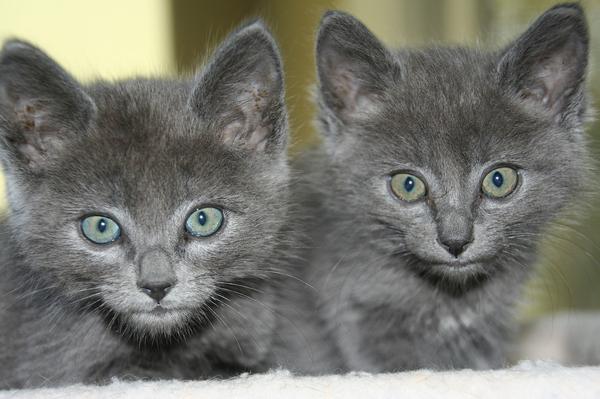
Visualize this:
Your heart sinks as you witness your beloved cat hissing and growling at her innocent kittens.
The worry coursing through your veins is unbearable.
What could possibly provoke this aggression? 🐱
Let's delve into the world of feline behavior and find some answers.
Reasons for Cat Aggression Towards Kittens
There are several reasons why a cat might become aggressive towards its kittens.
Let me give you some possible causes to think about:
- Maybe the mother cat isn't producing enough milk for her kittens.
- She might feel frustrated and stressed because she can't provide them with proper nourishment.
- Hormonal changes after giving birth could be making her aggressive.
- The mother cat might be afraid that something dangerous could happen to her kittens.
- Perhaps she had some bad experiences or trauma in the past that's making her act this way.
- It's also possible that she hasn't socialized much with other cats or kittens, so she doesn't know how to behave around them.
- Medical issues or pain could be making her irritable and more prone to aggression.
- Her protective instincts might be going too far.
- She could be guarding resources like food or territory, which leads to aggression.
- Sometimes, it just comes down to differences in personality between the mother cat and her kittens.
If you see any signs of aggression towards the kittens, here's what you can do:
- Make sure the mother cat is getting enough milk, and consult a vet if needed.
- If necessary, offer some supplemental formula for the kittens.
- Create a safe space where the kittens can go without being bothered by their mother.
- Start introducing the kittens back to their mother one at a time, and observe how she reacts.
- Consider hand nursing the kittens if you need to separate them temporarily.
- Once tensions have eased, slowly reintroduce the kittens to their mother.
- Help the kittens socialize by gently interacting with them and having playtime.
- Keep a close eye on the situation to make sure there's no ongoing aggression.
- If things don't improve, seek guidance from a veterinarian or animal behaviorist.
Remember that every cat and situation is different, so adjust your approach accordingly.
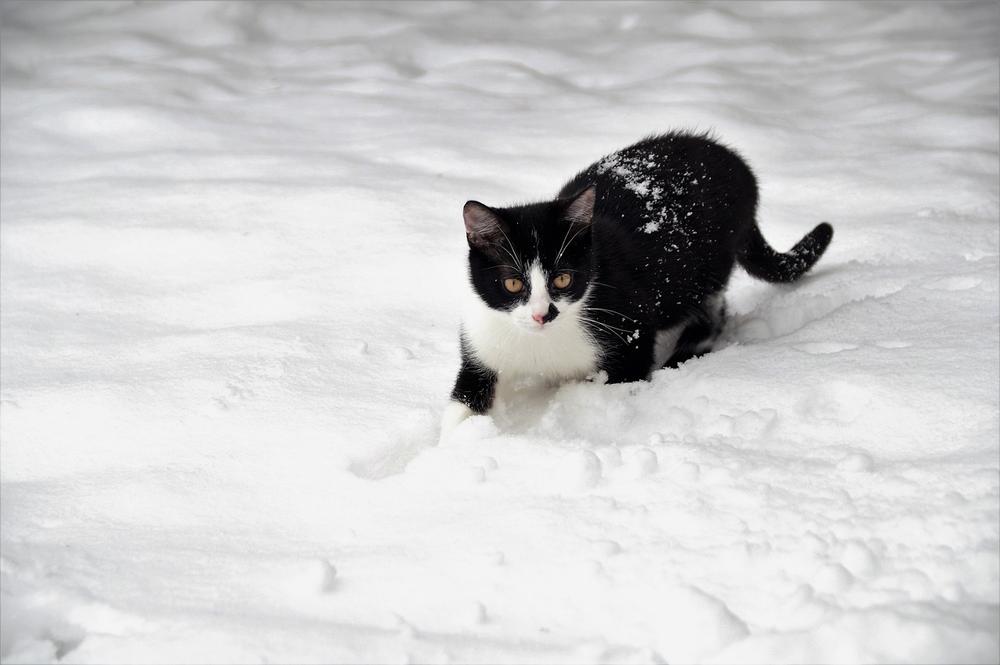
You might be wondering what could possibly be causing your cat to become aggressive towards her kittens.
Well, let me tell you, understanding the behavior of a pregnant cat can be quite perplexing.
But don't worry, I have written a comprehensive guide that dives deep into the reasons why pregnant cats can be mean and aggressive.
If you're seeking answers and a way to help your furry friend, I highly recommend checking out my article Why Is My Pregnant Cat So Mean and Aggressive.
Dental Issues and Pain Causing Aggression
Dental issues can be a cause of aggression in mother cats.
Here are some important things to consider:
- Regular dental checkups are crucial for maintaining good oral health and preventing dental problems in cats.
- Treating tooth decay or gum disease promptly can help alleviate pain and discomfort, reducing aggressive behavior towards kittens.
- If a cat hisses at her kittens, it may indicate the presence of pain or stress. It is essential to monitor the cat's behavior and look for signs of illness.
- Persistent or worsening hissing should not be ignored. Seeking veterinary attention is advisable to ensure proper assessment and treatment.
- Ensuring the mother cat receives sufficient and nutrient-dense food is vital during this demanding phase. Good nutrition supports overall well-being and aids in recovery.
- Maintaining a calm and stress-free environment can also help reduce aggression caused by dental issues.
- Providing appropriate chew toys and treats specifically designed for dental health can promote healthy oral hygiene in cats.
Addressing dental problems as soon as possible not only improves your cat's quality of life but also creates a safer and happier environment for her kittens. 😺
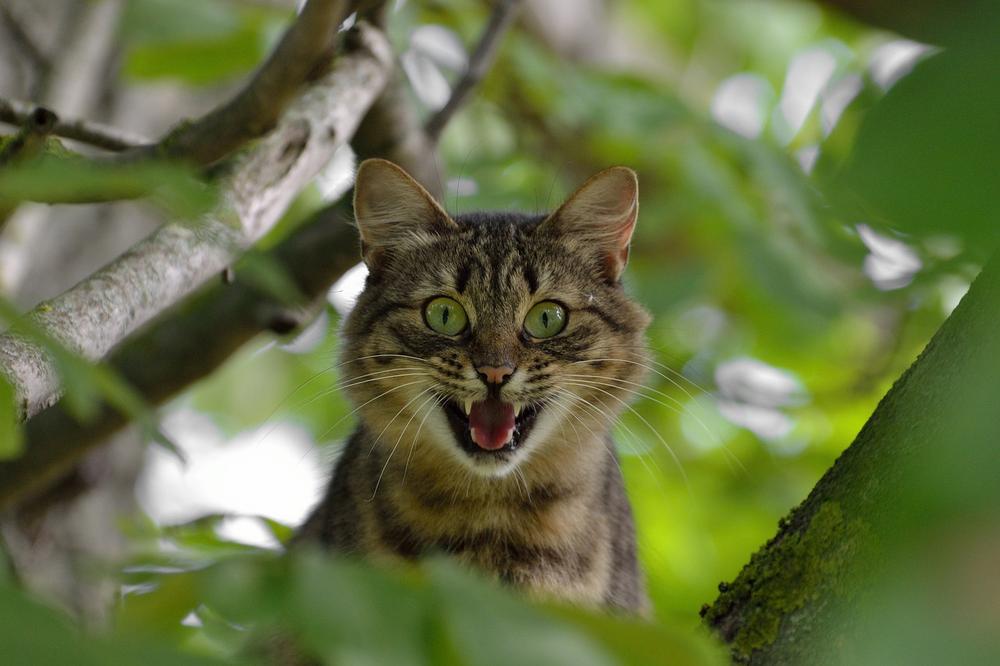
And now, let's delve into another potential reason for a mother cat exhibiting aggression towards her kittens...
Trauma or abuse history.
You should create a calm and stress-free environment for the mother cat while avoiding triggers that may remind her of past traumatic events...
Lack of Socialization or Negative Experiences
When a cat hisses at her kittens, there are a few things to consider:
- If the cat has had a rough past, she might show aggression towards her kittens. To avoid triggering bad memories, it's crucial to create a calm and stress-free environment for her.
- Cats are naturally solitary and territorial creatures, so it's normal for them to hiss at new kittens. After about a week of getting used to each other, though, the hissing usually calms down.
- Separating the mother cat from her litter can cause stress and aggression. It's important to give her some space and not make a big fuss about her hissing while everyone adjusts.
- Hissing can be a form of communication. It could mean that the mother cat needs a break or wants to wean the kittens. If separation is prolonged, she might not recognize them anymore and start hissing.
- During bonding sessions, make sure to give the mother cat attention to prevent jealousy. Also, be careful when touching the kittens. Consider the bond between the mother cat and wait until they're older.
- The mother cat might need a break from constant feeding, which could lead to hissing if the kittens try to follow her. Giving her some alone time can help with these behavioral issues.
Enhancing comprehension of these factors and establishing an appropriate atmosphere and assistance can enhance the hissing dynamics occurring between a mother cat and her offspring.
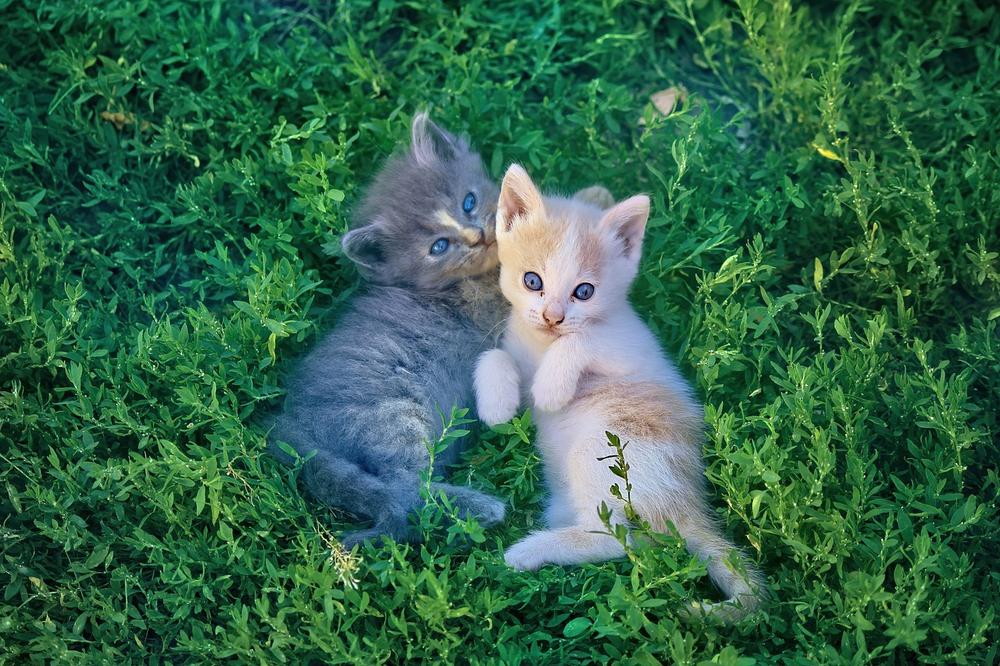
And now let's move on to another important factor that can contribute to a mother cat's aggressive behavior towards her kittens...
Loud and sudden noises:
Environmental Triggers and Protective Motherly Instincts
Dealing with a scared or aggressive cat?
Here are some things to bear in mind:
- Don't make sudden movements, especially near the cat. Sudden movements can surprise them and make them go into defensive mode.
- Stay calm and composed. Cats can sense your energy, so remaining calm will help them feel more secure.
- Make sure each cat has a safe space in your home. They need places where they can feel safe and hide when they're feeling anxious or threatened.
- If you see cats swatting or being aggressive towards each other, you might have to step in. Separating the cats temporarily can defuse the situation and prevent any injuries.
- It's important to understand why a cat hisses. A mother cat hisses at her kittens to protect them, show disapproval, teach good behavior, or express stress.
- Lastly, if the mother cat detects sickness or injury in one of her kittens, she may separate them for protection. But be careful, as this could result in painful scratches.
Follow these tips to create a peaceful environment for both the mother cat and her kittens, ensuring their safety and well-being.
And, to ensure a peaceful and harmonious environment for the feline family, I advise you to consider environmental enrichment as a vital aspect.
By providing mental stimulation, opportunities for alone time, and breaks for the mother cat, we can significantly reduce stress and aggressive behaviors in both the mother and her kittens...
Stress and Anxiety in Cats
To help your cat chill out and feel better, here are 8 things you can do:
- Make their surroundings more exciting and interesting.
- Keep their brain engaged with interactive toys.
- Let them scratch on posts instead of your furniture.
- Set up spots for them to climb and watch the world.
- Give them alone time and escape routes when they need it.
- Let them have some say in what they do to relieve stress.
- Give mama cats a break from taking care of their kittens.
- Get rid of anything that stresses them out in their space.
A happy cat is a healthier cat!
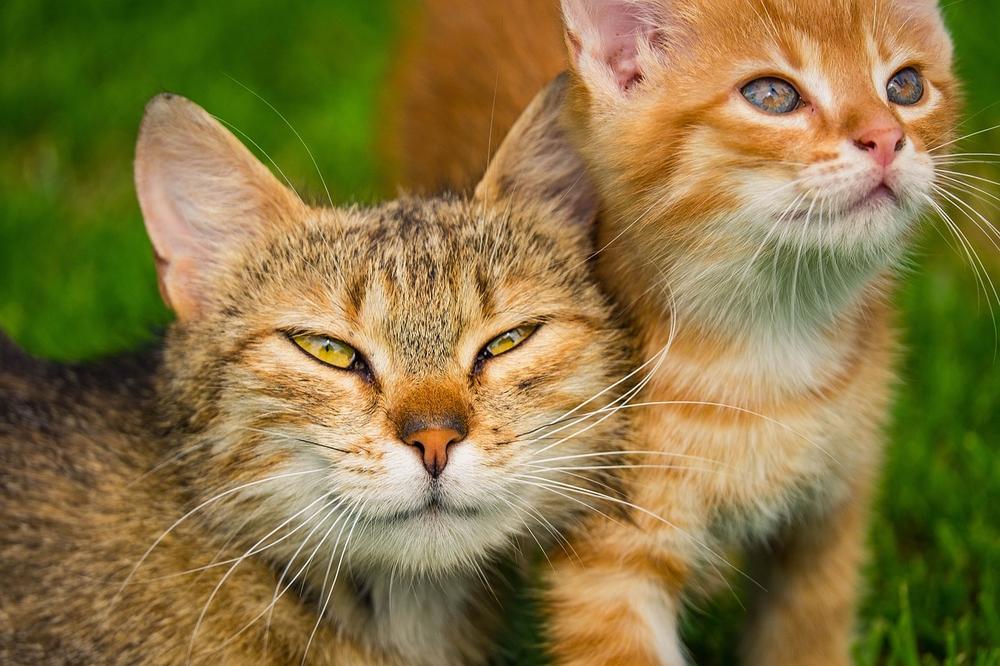
By following these simple steps, you can make sure your furry pal is feeling good and living their best life in a stress-free home.
But what happens when a cat's stress and anxiety turn into aggression towards her own kittens?
Well, let me tell you about the importance of establishing hierarchies and boundaries in cats, and how understanding their behavior can help create a harmonious environment for both mama cat and her little ones!
Territorial Behavior and Resource Guarding
Here's how you can handle territorial issues and resource guarding in cats – ten simple steps that anyone can follow:
- Give each cat their own litter room. Yep, multiple ones.
- Make sure clean litter boxes are available all over the house – plenty for everyone.
- Cats need their own separate territory and resources – don't make them share.
- Got some empty vertical space? Use it wisely with tall cat trees to create more turf.
- Keep an eye on those cat interactions. Look out for possible trouble brewing.
- Don't wait till things get messy – step in right away if there's any dispute.
- Let your cats hiss when they want to draw boundaries or sort out who's boss.
- Remember, hissing is just how cats talk to one another – nothing freaky about it.
- Respect their personal space, 'cause we all need a little privacy.
- Finally, create a peaceful space where your kitties can feel safe and relaxed.
Follow these tips to keep harmony amongst your furry clan – less guarding, more happiness.
'Cause remember, a happy cat is the best kind of cat!
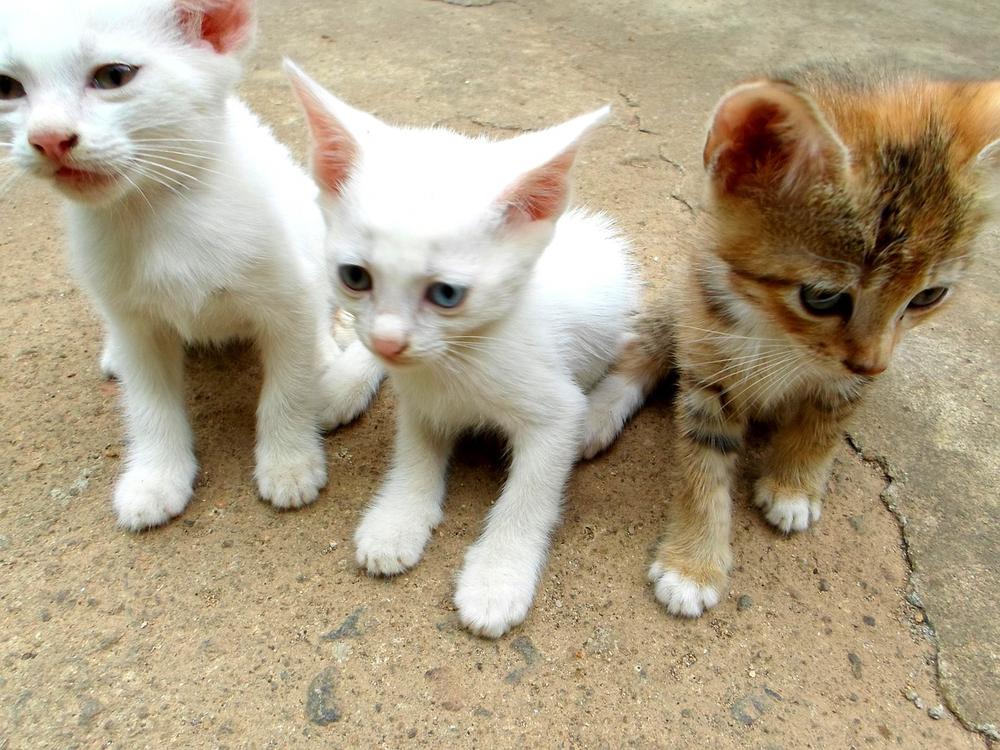
But what about when a mother cat becomes aggressive towards her own kittens?
Well, it turns out there's a fascinating explanation for this behavior, and understanding it can help you navigate the weaning process smoothly.
Let me shed some light on why this happens and how you can handle it...
The Role of Maternal Instincts
Watching a cat's maternal instincts is pretty amazing.
Here's what you've got to know:
- Gradually wean those kittens - it helps mommy cat adjust and prevents her from getting too aggressive. So, start giving them solid food while they still nurse, slowly reducing their reliance on milk.
- Get some top-quality food for those kitties - as they transition to solid food, make sure it's specifically made for kittens. That way, they'll have the right nutrition for when they wean themselves off mommy's milk.
- Hissing and growling are normal - don't worry if mommy cat hisses or growls at her kittens. It's just how she sets boundaries, teaches them important stuff, and keeps them safe. It's not because she sucks at being a mom; it's just instinct, dude.
- Watch out for aggressiveness during weaning - hormones can mess with mommy cat's temper during this stage. She might punish her kittens to correct their bad behavior and prep them for independence.
- Lead them to independence - as the kittens get older, mommy cat shows them the way to independent kitty life. When it's time, she'll let them know it's time to move out and do their own thing.
Understanding a cat's motherly instincts helps you appreciate their actions and create a loving environment for both mommy and her kittens.
Introducing New Cats or Changes in the Environment
Introducing new cats or making changes in the environment can be a delicate process.
There are several factors that can contribute to maternal behavior issues and aggression between cats in these situations.
To ensure a smooth transition, you should practice patience, understanding, and gradual introductions.
Here are some practical tips to help you navigate this process:
- Create a safe space for scared or aggressive cats. This can be a separate room with their own food, water, litter box, and bedding.
- Establish a routine with regular feeding, watering, and cleaning. Consistency will help them feel more comfortable and secure.
- Older cats may hiss at new kittens initially, but with time and gradual introduction, this behavior usually stops.
- Provide plenty of space, time, and positive reinforcement during the transition process. Show your cats that they're loved and valued.
- Familiar smells and comfort items, such as toys or blankets, can also help alleviate stress for older cats during this adjustment period.
Introducing new cats or changing the environment takes time and patience.
Separating cats initially and offering positive encouragement will aid in their integration.
Professional Guidance and Behavior Modification Techniques
You can make a big difference in stopping aggressive behaviors in cats towards their kittens with professional guidance and behavior modification techniques.
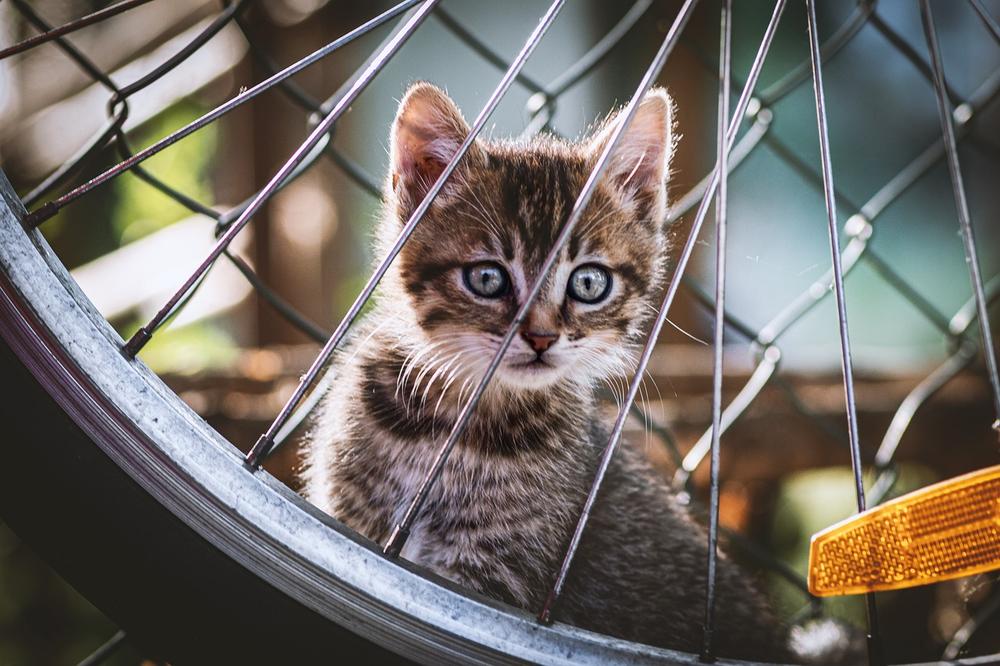
Here are some valuable tips to help you out:
- Use clicker training, which is effective in redirecting aggression by associating the sound of a clicker with rewards for desired behaviors.
- Stick to a regular routine for your cat, including playtime, mealtime, sleep, and grooming. Consistency makes them feel secure and reduces aggression.
- If you suspect your cat has a maternal behavior disorder, it's important to consult with a veterinarian or animal behaviorist. They can diagnose the issue and recommend treatment options like medication or hormone therapy.
- If hissing persists for a long time, consider reaching out to an animal behaviorist who specializes in cats. They can offer expert advice tailored to your specific situation.
- Your vet might suggest behavior management strategies or medications based on your cat's stressors and nursing stage. These interventions can ease aggression and create a safer environment for both the mother cat and her kittens.
Seeking help is crucial when needed!
Ending notes
Key Takeaways:
- Consider separating the mother cat from her kittens and hand nursing if necessary.
- Monitor for signs of illness or pain in both the mother cat and her kittens.
- Provide the mother cat with sufficient and nutrient-dense food for her well-being.
- Cats hiss at new kittens as a normal territorial behavior.
- Give the mother cat space and avoid making a big deal out of her hissing.
- Hissing indicates that the mother cat needs a break or wants to wean her kittens.
- Be cautious when touching the kittens, taking into account the bond with the mother.
- Create safe spaces for each cat and intervene if swatting occurs.
- Provide opportunities for alone time and exit options to alleviate anxiety.
- Hissing is a natural behavior for establishing hierarchies and boundaries.
- Maternal instincts drive behaviors like hissing and growling as a way to teach and protect kittens.
- Gradual introductions and creating a safe space are essential when introducing new cats.
- Establish a routine and provide plenty of space, time, and positive reinforcement during the transition process.
- Seek professional help for diagnosing and treating maternal behavior disorders.
And that wraps up today's article.
If you wish to read more of my useful articles, I recommend you check out some of these: Pregnant Cat Calling as if in Heat, My Cat Doesnt Want to Mate, Pregnant Cat Kneading, Pregnant Cat Keeps Meowing, and Cat Growling After Giving Birth
Talk soon,
-Sarah Davis